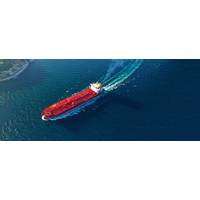Prices for EUROPE GAS are on the decline due to increased wind and LNG supplies
Dutch and British wholesale prices of gas fell on Friday morning, as a higher wind output is expected to begin Monday. Also, the supply of liquefied gas (LNG), was also increasing.
LSEG data shows that the benchmark Dutch front-month contract for the TTF hub fell by 0.33 euros to 32.05 Euro per megawatt hour at 0815 GMT.
The contract for November was lower by 0.23 euros at 32.94 euro/MWh.
The British gas prices for the weekend were down 0.50 pennies at 78.50 penny per therm.
According to LSEG, the wind generation in North-West Europe will be 60% higher on Monday than it is today. This will reduce the demand for gas at power plants.
The total Norwegian export nominated are down 6 million cubic meters (mcm) at 217 mcm/day. The flows into Continental Europe have decreased by 8 mcm to 166mcm/day.
The LNG export from North-West Europe is expected to increase by 151 gigawatt-hours (GWh) on Friday to 2,079GWh/day due to an increased send-out at Zeebrugge.
Dzmitry Dzmitry Dauhalevich, LSEG analyst, stated that twenty cargoes were scheduled to be shipped over the next two week period, including three new shipments.
Energy Aspects analysts said they were slightly bearish about TTF Winter-25 and saw further downside risks due to the continued Arctic LNG 2 exports into China.
LSEG's and Kpler’s ship tracking data revealed that a third tanker, from Russia's Arctic LNG 2 facility, which is subject to Western sanctions, discharged and left a terminal in China Wednesday.
"A full ramp up of exports would be the biggest risk to our price forecast for 2026, but it is still dependent on a Russia/Ukraine peace agreement, which is unlikely in the next few months."
Further sanctions against the U.S., EU and Russia are another geopolitical threat.
After a meeting on Thursday with U.S. Secretary of Energy Chris Wright, EU Energy commissioner Dan Jorgensen stated that the EU will stick to its deadline for phasing out Russian oil imports by 2028.
As part of the new sanctions against Moscow, EU Commission President Ursula von der Leyen stated on Wednesday that the EU is considering a quicker phase-out of Russian fuels.
The EU's Russian Energy Ban will be enshrined in law by 2028, if the phase-out plan is implemented. The EU must re-approve sanctions every six months. The EU can agree on its phase-out by 2028 and then, if necessary, pass sanctions that would ban Russian energy imports earlier.
Von der Leyen didn't specify Wednesday how the EU will use sanctions to phase-out Russian energy earlier. Brussels is currently working on a 19th set of sanctions against Russia
The benchmark contract on the European carbon markets was down 0.37 euros at 75.17 euro per metric ton. Nina Chestney reports.
(source: Reuters)
